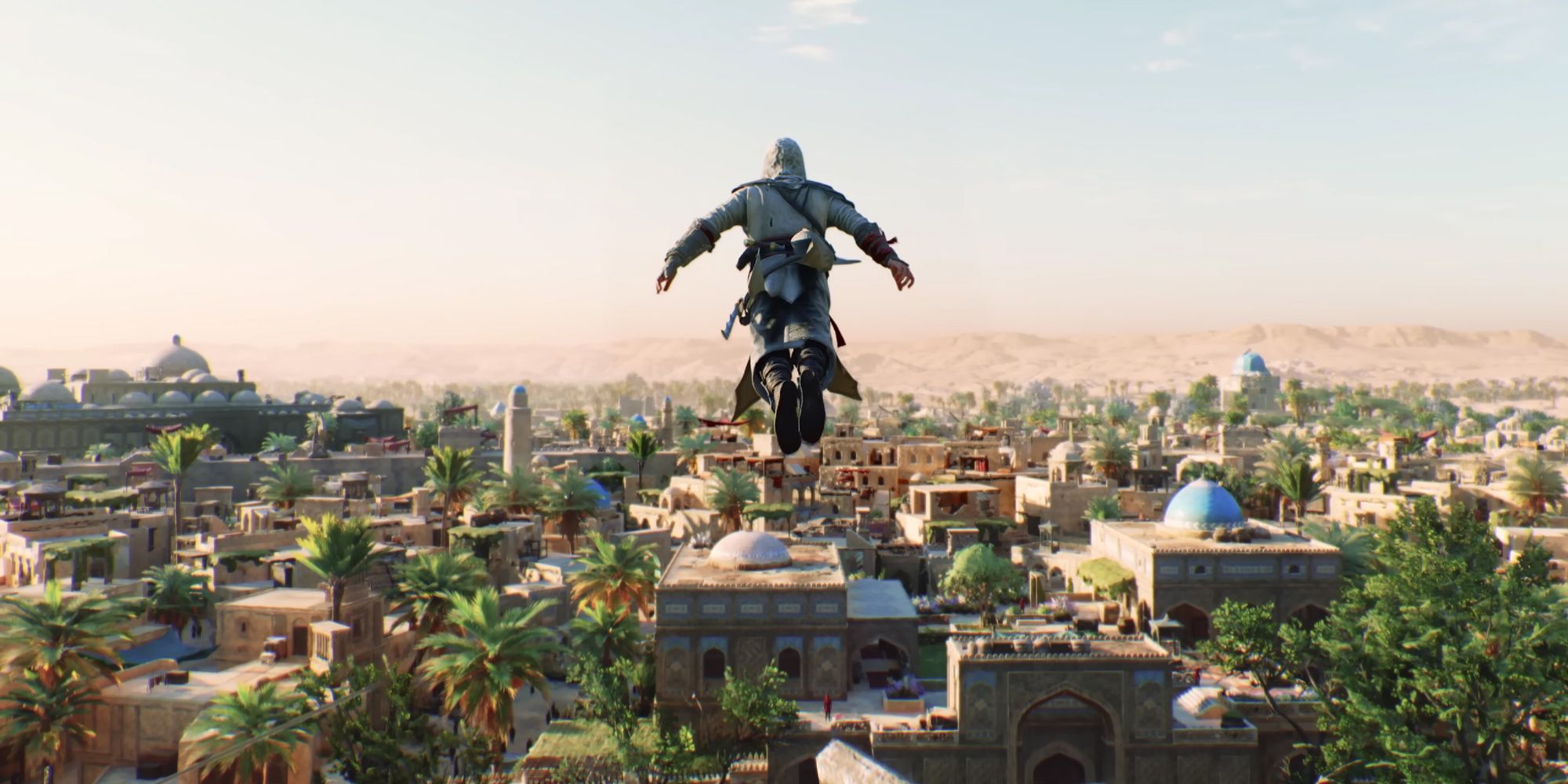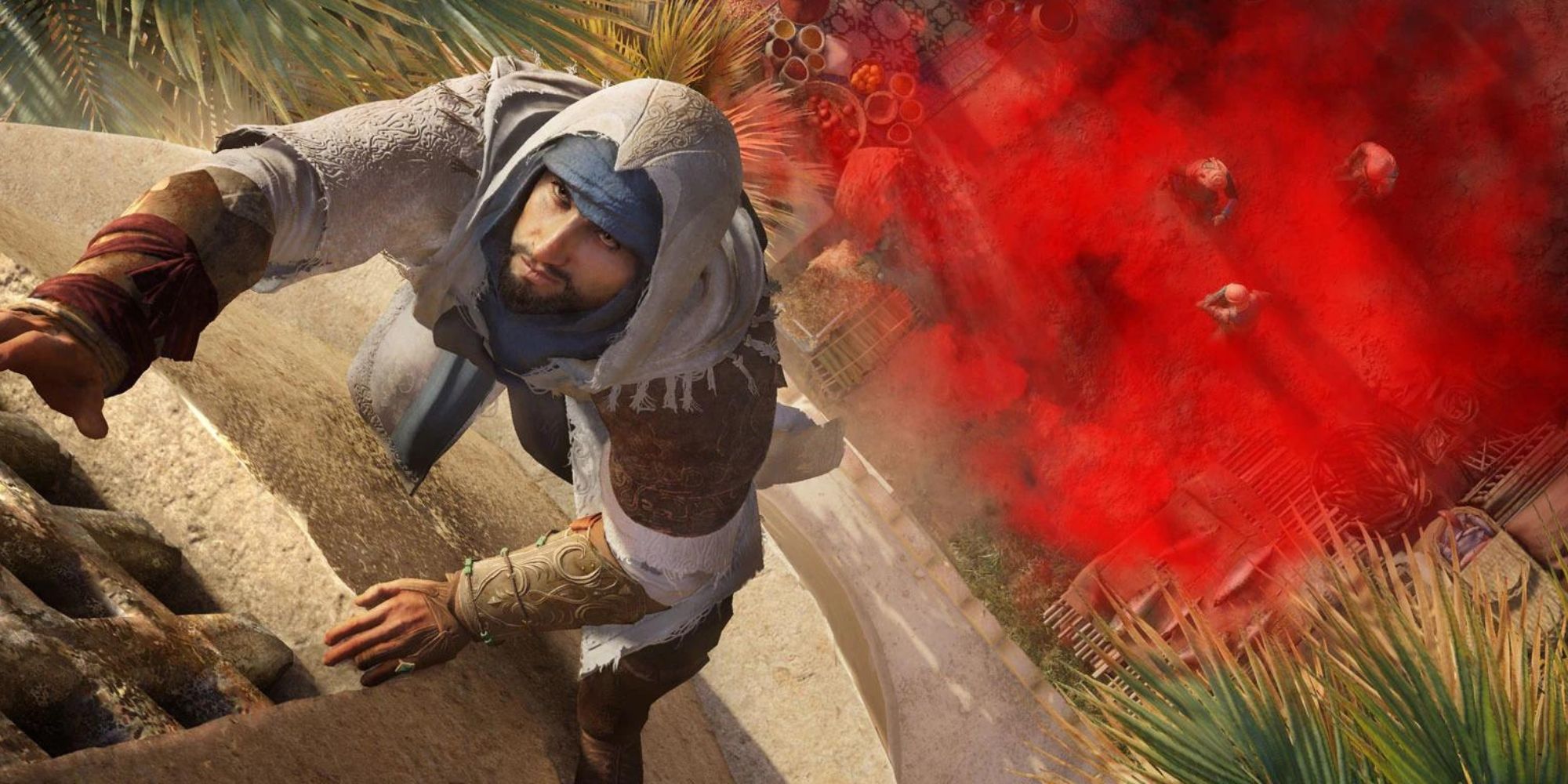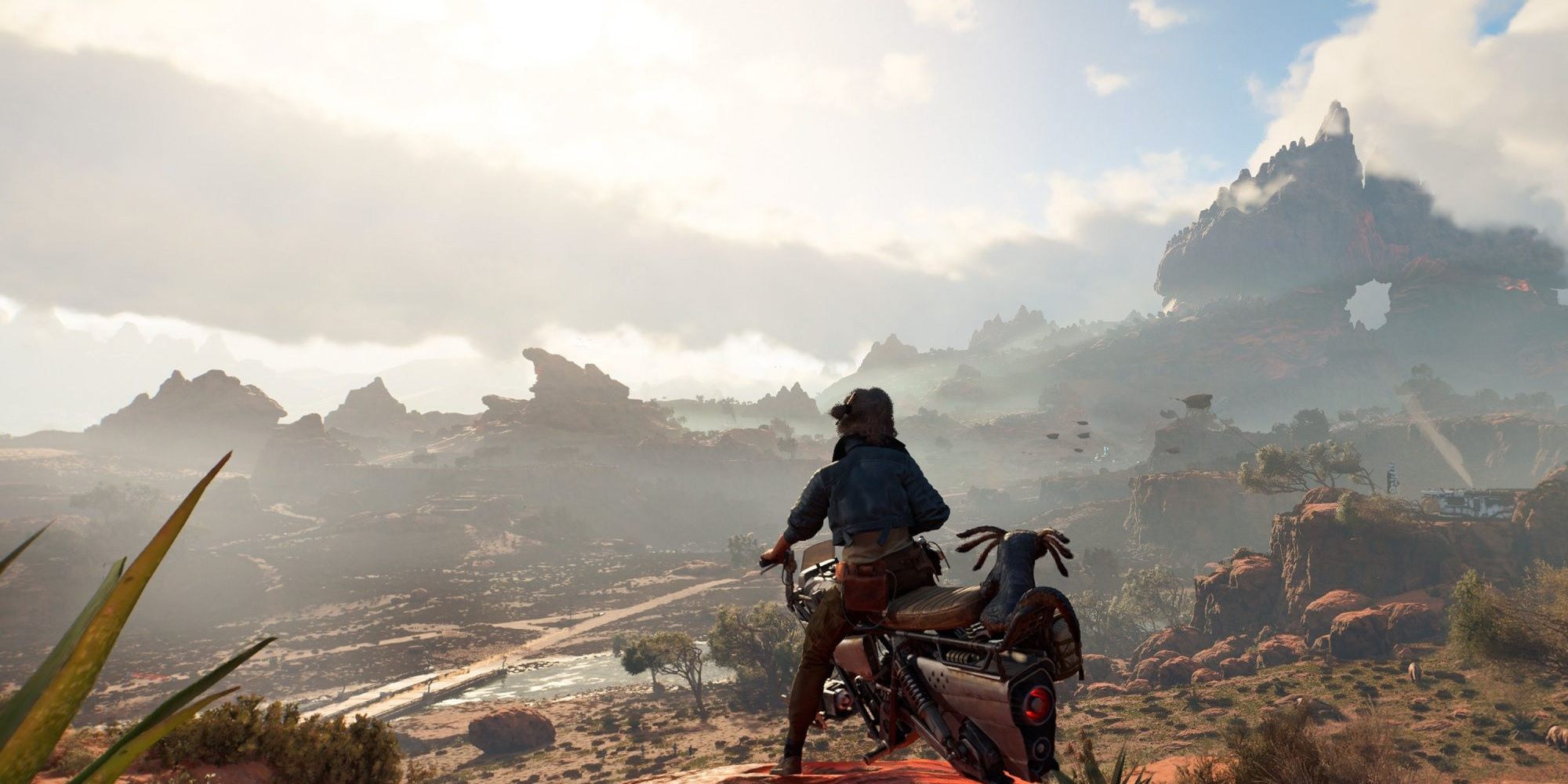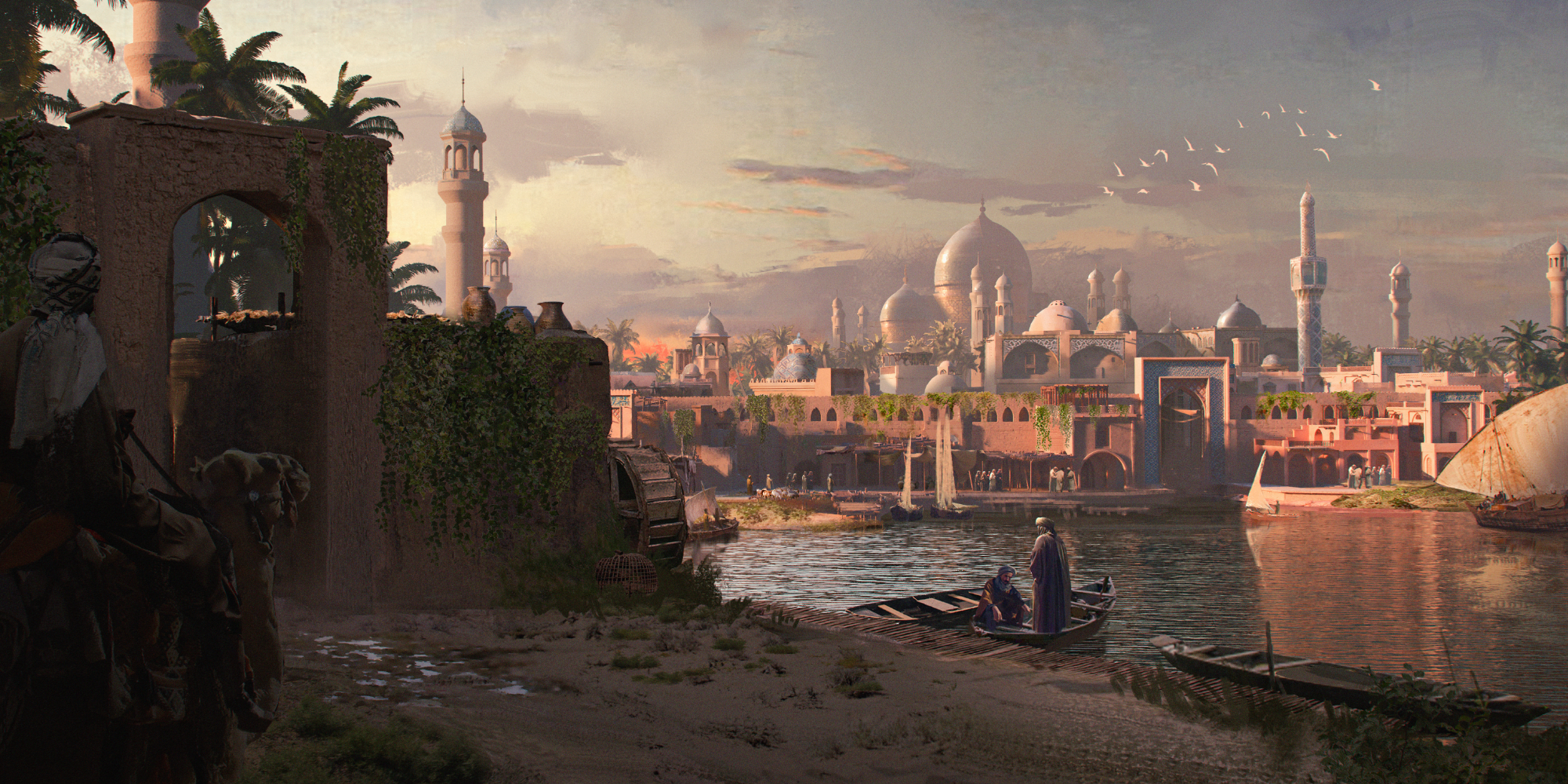Highlights
- Ubisoft is distancing itself from its signature open-world formula.
- As well as directional changes for Assassin's Creed and Star Wars Outlaws, the company is reviving older IPs like Prince of Persia and Splinter Cell, signaling a shift away from its longstanding open-world template.
Say what you will about the flat, formulaic open-world design of most of Ubisoft’s games released over the past 5(?) 10(?) years; when the formula you crafted and popularised leads to your company name having a whole genre named after it, then in a cold corporate sense that has to be counted as a success.
‘Ubisoft game’ has become a colloquial term used by everyone from your mum, to your dad, to David ‘Salad Fingers’ Firth, for a certain type of open-world design that the company has become synonymous with: large and pretty open-worlds, maps crammed with markers pointing to side-activities, a weird lack of interesting internal spaces, and what I personally can only describe as this enigmatic quality of flatness (something in the mannequin-like faces, the low-friction questing, and sense that you’re a tourist rather than tangible entity in these worlds).
Many of us scorn it, many of us love it, and tons of us buy into it. There’s no question that ‘the Ubisoft game’ has been a hallmark of modern gaming.
But based on recent announcements and murmurs from Ubisoft itself, it sounds like we’re coming to the end of an era. From the Assassin’s Creed Mirage announcement, when Ubisoft said it’d be taking the series ‘back to its roots’ and crafting a shorter, denser experience, to proudly saying the game would be 20-30 hours long, to their latest statement that Star Wars Outlaws “is absolutely not a 200 or 300-hour epic unfinishable RPG” (y’know, like AC: Valhalla very much was), Ubisoft is clearly looking to distance itself from the open-world formula it was so instrumental in creating.
Look further down the list of upcoming Ubisoft games, and the shift away from open-world massiveness goes on. They’re reviving beloved but long-absent IPs like Prince of Persia, Splinter Cell, and even the largely slept-on World War 1 narrative adventure Valiant Hearts. Sure, none of those were ‘Ubisoft formula’ games before, so it’s not that jawdropping that they won’t be again, but the fact that they’re all coming back after a long hiatus is significant. It all marks a big, and not unwelcome, change from the company’s outlook back in 2019, when Ubisoft said that it wouldn’t be making smaller games, as reported by Gamesindustry.biz, via PC Gamer.
The tide is turning here, and it’s kind of exciting.
Don’t get me wrong: I still have a lot of reservations about Assassin’s Creed Mirage. The gameplay I’ve seen looks a tad generic, and while I’m interested in seeing a more focused, denser game world, the moment-to-moment gameplay hasn’t wowed me thus far. Still, if there’s one thing you can trust Ubisoft to do, it’s to regularly refine and iterate on a formula until it reaches a peak, before subsequently rinse-and-repeating it until it becomes tiresome. Few people rank the latest Assassin’s Creed game, Valhalla, as the best of this newish RPG-inspired bunch, Far Cry arguably peaked with the fourth iteration, and I’d venture to say that most people rank Black Flag and the Ezio trilogy above Unity and Syndicate when it comes to the old-school style AC games.
Even assuming the very worst based on Ubisoft’s past form, Assassin’s Creed is starting a new cycle that’s likely to get a fair bit better before it gets worse, and it seems it’s applying its ‘quality over quantity approach’ to Star Wars Outlaws too.
Best-case scenario is that Ubisoft becomes better at identifying when a franchise reaches the point of ‘milking it,’ and makes interesting directional changes before it reaches that point, but at the very least they seem to be moving away from a template that’s simultaneously been a huge success for them, as well as a bit of a derogatory term for ‘heavily formulaic open-world game.’ It’s a bold move that may well explode in their faces, but taking that *ahem* leap of faith is something to be commended for a company that’s been known to get a bit stuck in its ways.
And who knows? If Ubisoft, with all its games that often feel like they’re conceived in marketing departments and focus study groups, maybe other publishers will take note too? Not all open-world games are bad, but there’s a certain type of open-world game that more and more of us are getting burned out on, as well as games that really don’t need to be open-world games at all going for that open-world framework. And while not all games in the ‘Playstation formula’ of glossy story-driven games are open-world, there’s no question that Ghost of Tsushima, Horizon, and God of War Ragnarok are guilty of being (unquestionably beautiful) playgrounds filled with markers, trivial collectibles, and silly side-activities.
Now, I don’t actually think that Ubisoft is full-on turning its back on its tried and trusted template—there’s Assassin’s Creed Infinity, of course, which sounds like it might be the ultimate manifestation of it. But if the existence of this persistent service game with its interconnected open worlds (or whatever the hell it is) means that Ubisoft gets more creative with its premium single-player offline offerings, then I’m all for it. And maybe we’re already seeing that in action.




